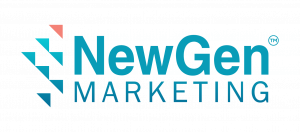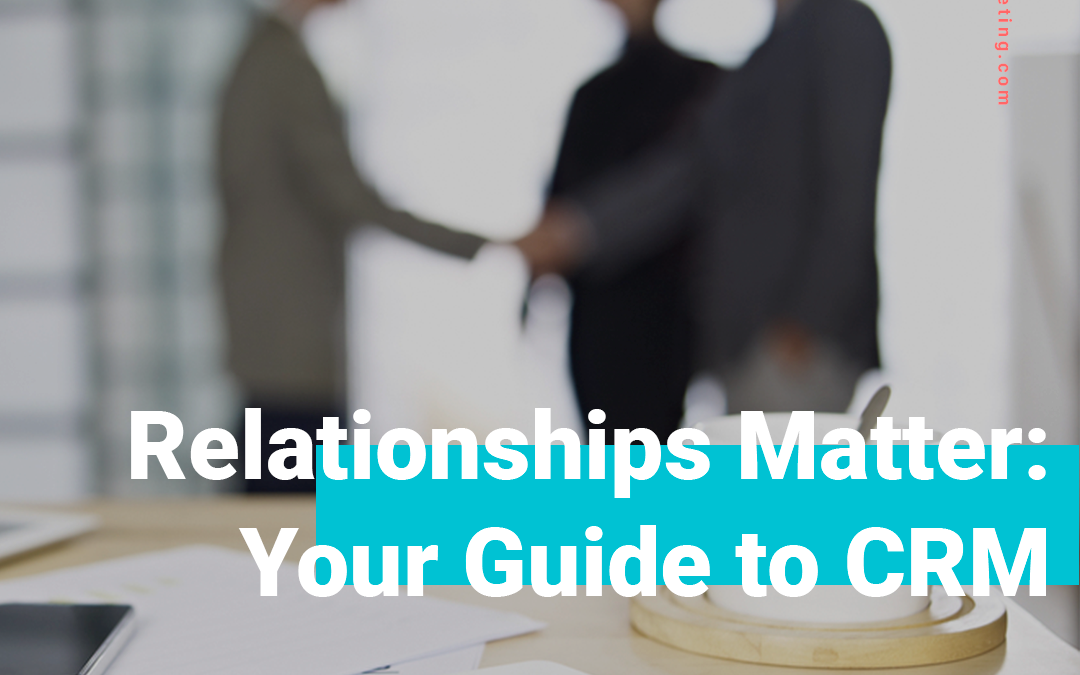Relationships, in general, are one of the most important aspects of life. Establishing relationships, properly networking, and making the best of your interactions with others are important for success.
The same can be said about healthcare. Relationships in terms of healthcare can be complicated but it doesn’t have to be.
Technology has come a long way and there software now exists that can help you manage any and all relationships and interactions surrounding your brand. It is known as Customer Relationship Management (CRM).
Although the software itself isn’t a new concept, it very well is the next big thing, especially in terms of healthcare. We are living in a very digitized world where with each passing day our reliance on technology grows.
At NewGen, our tech-savvy team can help you keep up with this paramount shift in healthcare marketing. It can be overwhelming, but we are here to help. This guide is built to further your understanding of CRM, but as always, if you have other questions about CRM or NewGen in general, feel free to contact us!
The Origin of CRM
CRM was first developed in the early 1970s. Customer relationship management was born out of a prediction made by various companies which focused more on customer relationships rather than the actual product. Low and behold it has stuck around since then.
However, there was a time when CRM was not even needed nor was it as important as it is today. There wasn’t a need for a program based on customer relationships due to the fact that back in the day doctors would just visit their patients’ homes to treat them.
This made for a very personal healthcare experience, as most people knew their doctors very well and had the same doctor for a long time.
But of course, times changed and the roles reversed. Eventually, doctors set up their own offices in which patients had to go to them instead of the other way around. It stayed this way for a very long time. But then the COVID-19 pandemic struck and changed the face of healthcare as we know it.
Healthcare shifted online in order to keep up with new rules and regulations put in place because of the pandemic and turned customer relationship management into a crucial tool for healthcare practices.
CRM was based on three major principles:
- Maintaining current customers
- Bringing in new customers
- Adding value to all the customers
CRM was a very basic program and only ever needed to keep up with these three functions. With the needs of digital integration today, CRM provides much more.
It started dealing with the more complicated sides of business such as profit, customer satisfaction, and loyalty, while also lowering business costs and investments.
How has CRM Evolved?
Today, CRM has taken on a new role. Customer relationships are dependent on marketing and sales, factors that can be controlled. Customer relations management now looks more like this:
- Increase in the importance of:
- the customer/patient over the product or service
- customer satisfaction and loyalty rather than self-satisfaction and profit
- retaining existing customers
- one-to-one company interactions
- New software and technologies can hold useful information and get rid of manual labor
- Using information proactively and not reactively
- Technology can decrease costs while still keeping the quality of the product or service
- Rethinking traditional trends of marketing and selling
These reasons turned CRM into what it is today and still push the advancements of CRM each day.
What Makes Customer Relationship Management So Important?
Well, think about it. If less time is being spent on administration then that means more time for everything else. Time is money after all. In healthcare specifically, this is crucial. Sure, a sales team can generate a flood of data and representatives can talk to customers to get even more information, but a common occurrence with this is that the information can’t be organized or stored in a way that is useful to your brand.
Without an organization system that collects data and tracks patient information, details can get lost, patients aren’t scheduled, and prescriptions aren’t put in on time. This situation, as complicated as it sounds, can be almost impossible to manage if a key salesperson moves on. But it’s not just sales that suffer without CRM.
Your customers might struggle to reach out to your business with questions if there isn’t a common platform that all customers can use. This can have all kinds of negative effects on your brand’s image and reputation.
This is what makes CRM such a valuable asset, especially now in 2022. CRM is the largest and fastest-growing enterprise application software to date. If you want your business to survive the test of time, you’ll need a game plan that focuses on customers through the use of technology that in turn helps you to best serve them.
The Power of CRM
The goal of CRM is simple: improve patient and provider relationships to grow your brand to new heights based on a healthcare marketing plan. To gather that data, a practice will need a system to help stay connected to patients and leads, streamline certain processes, and improve profits all around.
The following will help outline everything CRM is capable of, which is more than you may think.
Any and All Relationships:
Its main purpose is to help bring focus to an organization’s relationships. This covers everyone: customers, service users, colleagues, and suppliers. It can help manage the entire lifespan of the customer relationship and can even bring in new customers as well.
It keeps track of customer information, identifies sales opportunities, records service issues, and manages marketing campaigns, all in one place – making information about every customer interaction available to anyone at your company who might need it. All of this can be used to your advantage to propel your brand’s success.
With visibility and easy access to this data, it’s easier to collaborate and increase productivity. Everyone in your company can see how customers have been communicated with, what they’ve bought, when they last purchased, what they paid, and so much more. CRM can help companies of all sizes drive business growth, and it can be especially beneficial to small businesses, whose teams often need to find ways to do more with less.
A CRM system can also give you a clear overview of your customers. You can see everything in one place — a simple, customizable dashboard that can tell you a customer’s previous history with you, the status of their orders, any outstanding customer service issues, and more.
You can even choose to include information from their public social media activity accessing their likes and dislikes, what they are saying, and sharing about you or your competitors.
Healthcare marketing also utilizes CRM data to manage campaigns and lead with more information driven strategies.
CRM is a miracle worker in terms of sales and marketing but using it to help shift your brand to a more customer-oriented practice, putting your customer’s needs at the forefront of business allows CRM to reach its full potential which will help your brand be the best it can be.
We Want To Help!
Here at New Gen, the experts in healthcare marketing, our professional understanding of CRM can help skyrocket your brand and help you use CRM in a way that would most benefit your practice.
We can better address your marketing efforts and ROI with CRM and take pride in our understanding of the level of healthcare management and can use this to help smooth any road bumps your practice may be having. Contact us for guidance with CRM and various other marketing strategies.

